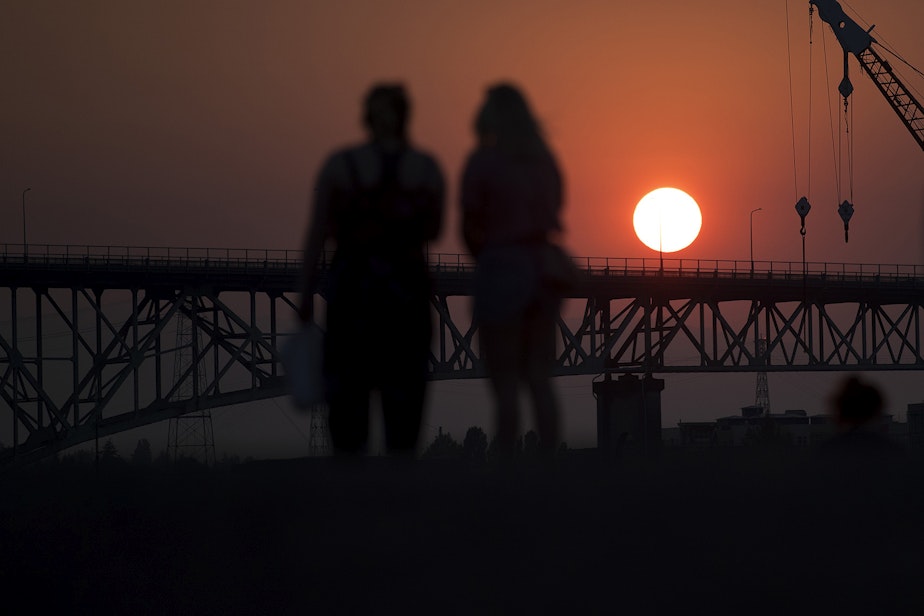Seattle summer nights are warming up, and yes, that's because of climate change

Growing up in Seattle, I wore a fleece on summer evenings. Daytimes were warm, sometimes even wilting, but nights, starting around 7 p.m., were crisp.
The first time I didn't need my fleece in Seattle was on an August night in the early 2000s, and I was delighted. This felt like the East Coast summers that Judy Blume described, the kind where you stretch out your hands and feel warmth straight to your fingertips. In Seattle, you could always find pockets of cool air when you waved your hands around.
It turns out, that warm night was my first glimpse at climate change in the Northwest.
We’ve talked a lot about the impending heat wave, and the daytime record that might be broken. Triple digits! Possibly two days in a row!
The baseline is warming for daytime and nighttime temperatures, says Karin Bumbaco, assistant state climatologist. But nighttimes have caught her attention.
After a 2009 heat wave, the state climatologist office looked at times when temperatures stayed very hot for at least three days in a row. In terms of those “heat events,” they didn’t actually see an increase in the daytime.
But nighttimes were different. They’ve been getting warmer. I’ve noticed this too – I haven’t been wearing a sweater or fleece in the evenings for years.
“This upcoming this weekend, it looks like we might reach a record high overnight temperature, which I'm not surprised about at all,” Bumbaco said.
Our cool nights had been nature’s air conditioning. We kept our windows open at night and pulled the shades during the day.
“You lose that ability to cool off at night,” Bumbaco said. “We really rely on that cooling at night that would historically happen, even if we get warm days.”
Temperatures have been recorded at Sea-Tac Airport since 1945. In that time, Seattle has reached 100 degrees just twice. On July 20, 1994, a temperature of 100 was recorded. And on July 29, 2009, the mercury hit 103.
Both those records were in late July, which makes this June heat event even more unexpected.
“In addition to that, the duration of this forecasted event also looks to be pretty long,” Bumbaco said.
Is this a climate change event? Bumbaco’s answer was nuanced.
“In a changing climate, we do expect to see more of these types of heat waves,” she said. “We're just at the point where, if the temperatures are warming, it's because of greenhouse gases.”
She continued: “In my view, it's a safe assumption to at least blame increasing greenhouse gases for some portion of this upcoming event.”
Does this mean 2022 will have an extreme heat event? No. But it does mean that we will likely see more heat events – days of high temperatures – in the years ahead.
Produced for the web by Isolde Raftery.
Have something to say about this story? Write us at seattlenow@kuow.org, or click the feedback button on the right hand side of this page.





